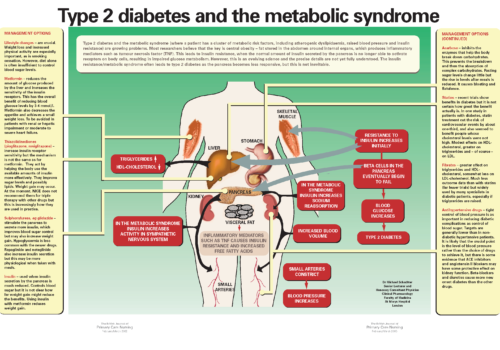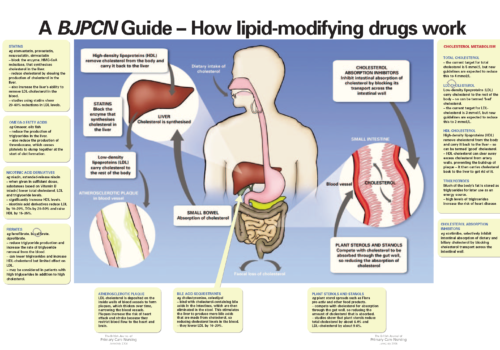Rehabilitation after a myocardial infarction (MI) includes all aspects of a patient’s life – medical, physical and social. Sexual functioning is an important part of most people’s lives. Fears about whether having sexual intercourse could trigger another heart attack is the question many post-MI patients want to ask but embarrassment may stop them. Giving accurate information about sex after an MI is just as much a part of patient education as telling them about cholesterol and blood pressure and can go a long way to helping recovery and preventing further problems such as sexual dysfunction.
Stroke and TIA
Stroke is common, affecting around one in four people over the age of 45 at some time in their lives. Increasing age is a major risk factor for stroke, so the numbers of people suffering a stroke will increase with the ageing population. Primary care teams have a central role in providing effective secondary prevention, but because patients often fall between primary and secondary care, things may be missed. Taking a systematic approach to assessing risk factors, such as blood pressure, and treating them effectively can significantly reduce further stroke risk.
Quality … and beyond
Quality is the latest buzzword in healthcare. The latest GMS contract emphasises this in the Quality and Outcomes Framework (QOF) designed to measure and reward key elements of primary care chronic disease management. In this issue of BJPCN we start a new series – Points mean Prizes – on how to make sure you get all the ticks in the boxes for the data you need to collect to get maximum QOF points. The series will provide a step-to-step guide on how to score on the 76 quality indicators in the 10 clinical domains of care.
Measuring BP at home
Most people with hypertension are diagnosed and managed on the basis of blood pressure (BP) measurements taken by healthcare professionals in the surgery. Although clinic readings remain the accepted method of measuring and monitoring BP, they are widely acknowledged to be prone to inaccuracies, such as the infamous ‘white coat effect’ that can lead to artificially high readings. In addition, the relatively small number of readings generally taken in the clinic offers only a ‘snapshot’ look at BP levels that may not reflect real values. There is increasing evidence that the use of self BP measurement – with patients monitoring their own BP at home – may provide some advantages over BP measurement in the clinic or surgery. These include potentially more accurate readings and average values that are more reproducible and reliable than traditional clinic measurements. In this article we look at the evidence for the use of home BP monitoring and the accuracy of home monitors.
What to tell your patients about statins
An increasing number of patients are prescribed statins because of the growing evidence that they can dramatically reduce cardiovascular events. However, the withdrawal of one statin – cerivastatin – some time ago may have made some patients concerned about their safety. What should we be telling patients about the benefits of statins, how long they should take them for and whether there are any risks with these widely used agents?
Back to Basics: Type 2 diabetes and the metabolic syndrome
Type 2 diabetes and the metabolic syndrome (where a patient has a cluster of metabolic risk factors, including atherogenic dyslipidaemia, raised blood pressure and insulin resistance) are growing problems. Most researchers believe that the key is central obesity – fat stored in the abdomen around internal organs, which produces inflammatory mediators such as tumour necrosis factor (TNF). This leads to insulin resistance, when the normal amount of insulin secreted by the pancreas is no longer able to activate receptors on body cells, resulting in impaired glucose metabolism. However, this is an evolving science and the precise details are not yet fully understood. The insulin resistance/metabolic syndrome often leads to type 2 diabetes as the pancreas becomes less responsive, but this is not inevitable.
Aspirin in patients with diabetes
Patients with diabetes are at high risk of cardiovascular disease and aspirin is an important part of prevention strategies. Although it is effective and relatively well-tolerated, studies have shown that many patients with diabetes are not taking aspirin. In this article, we review why aspirin should be considered in patients with diabetes, the benefits it might achieve and areas where caution is required.
Making full use of BJPCN online
Resources for smoking cessation
Aventis insulin withdrawals
Improving the primary care management of obesity
Over half of all adults in the UK are overweight, according to latest figures. The number of people who are obese has tripled over the last 20 years, and is still rising. But is weight management an issue for primary healthcare teams? There is clear evidence that it is – with obesity being directly related to increased risk of death and a range of chronic diseases. Obesity reduces life expectancy, on average, by nine years. At long last there is some encouragement for general practices to optimise detection and management of obesity. The new General Medical Services (GMS) contract includes 208 from a total of 1050 points available in the Quality and Outcomes Framework that are affected by weight loss, offering a major financial incentive to general practices to encourage patients to lose weight.
What patients think about long-term anticoagulant therapy
Effective long-term anticoagulation requires a good working partnership between patients and the healthcare team. A key part of this is that patients understand how their treatment works, why it has been given and how to take it correctly. AntiCoagulation Europe, a patient organisation for people on anticoagulants, recently carried out a survey of 711 patients with atrial fibrillation (AF) from seven European countries (France, Germany, Italy, Norway, Spain, Sweden and the UK) being treated with a vitamin K antagonist (VKA) such as warfarin. The it’s about time survey was designed to explore patients’ insights into their treatment. The results show that many patients have gaps in their understanding about anticoagulation therapy and emphasise the need for ongoing patient education and the development of more patient-friendly anticoagulants to improve outcomes and quality of life.
























